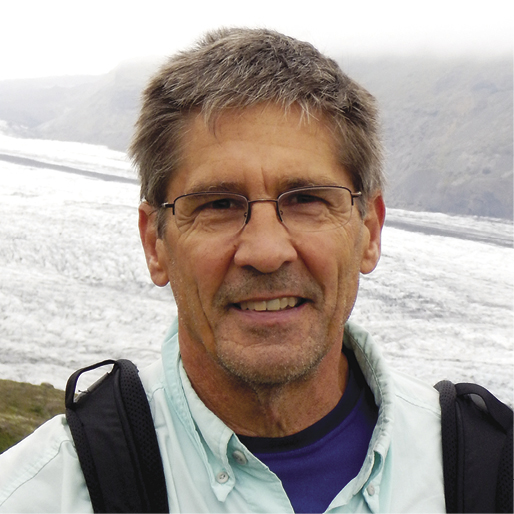Jonathan Martin, Ph.D.
Professor of Geology
College of Liberal Arts and Sciences
2023 Awardee
Jonathan Martin’s research focuses on interpreting chemical compositions of water to understand interactions between biogeochemical and hydrologic processes. He conducts pioneering research in three distinct environments globally: carbonate landscapes (karst) in the Yucatan, Bahamas, and Florida; coastal aquifers of the Yucatan and Florida; and Arctic watersheds in Greenland.
In karst landscapes, Martin’s research illustrates that carbonate dissolution (cave formation) and chemical cycling of nutrients and greenhouse gases, particularly methane and nitrous oxide, are largely controlled by groundwater and surface water mixing. The chemical reactions driven by mixing provide feedbacks to dissolution, nutrient availability, nitrous oxide production, and methane production and consumption.
In coastal aquifers, Martin studies the effects of saltwater intrusion on coastal freshwater resources and coupled impacts on nutrients delivered by groundwater to estuarine ecosystems. His research predicts that rising sea level could increase the salinity of coastal freshwater resources within decades and simultaneously diminish groundwater discharge, while altering its nutrient composition, both of which have implications for effective management strategies.
In Arctic watersheds, Martin investigates variations in stream water nutrient compositions and greenhouse gas production and consumption across glacial landscapes following ice sheet retreat. His research demonstrates that solute delivery to the ocean and greenhouse gas exchange with the atmosphere varied in predictable ways over the past 20,000 years as the Arctic switched from an ice-covered to a largely ice-free region. These changes have important implications for future ice retreat with global warming.
Overall, Martin’s research has contributed significantly to our understanding of various Earth systems, where interactions between groundwater and surface water control water chemistry. His work refines the relationships between natural biogeochemical and hydrological processes and their impacts on global resources and climate. It has been recognized by his peers through election as a Fellow and Birdsall-Dreiss Distinguished Lecturer of the Geological Society of America.


